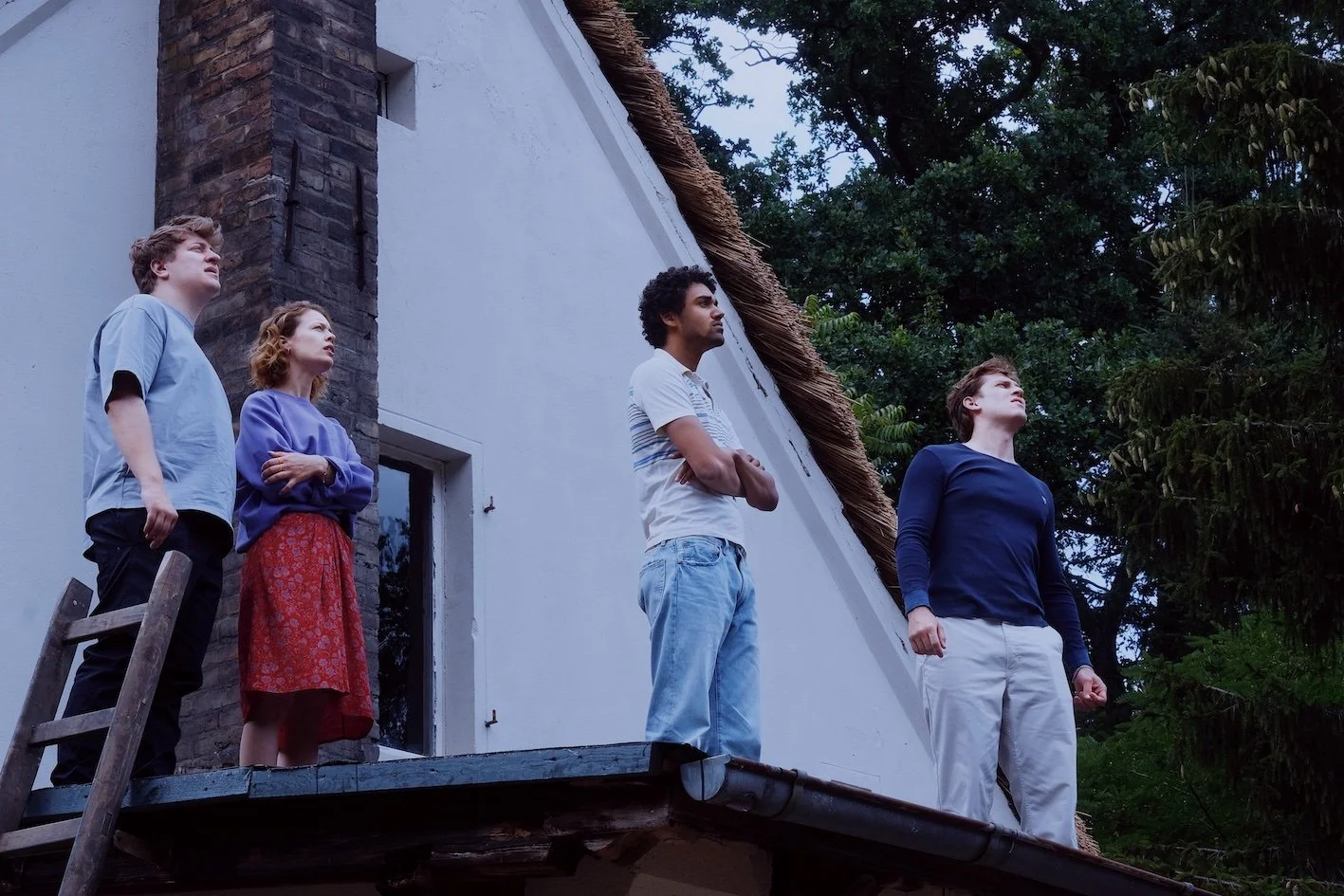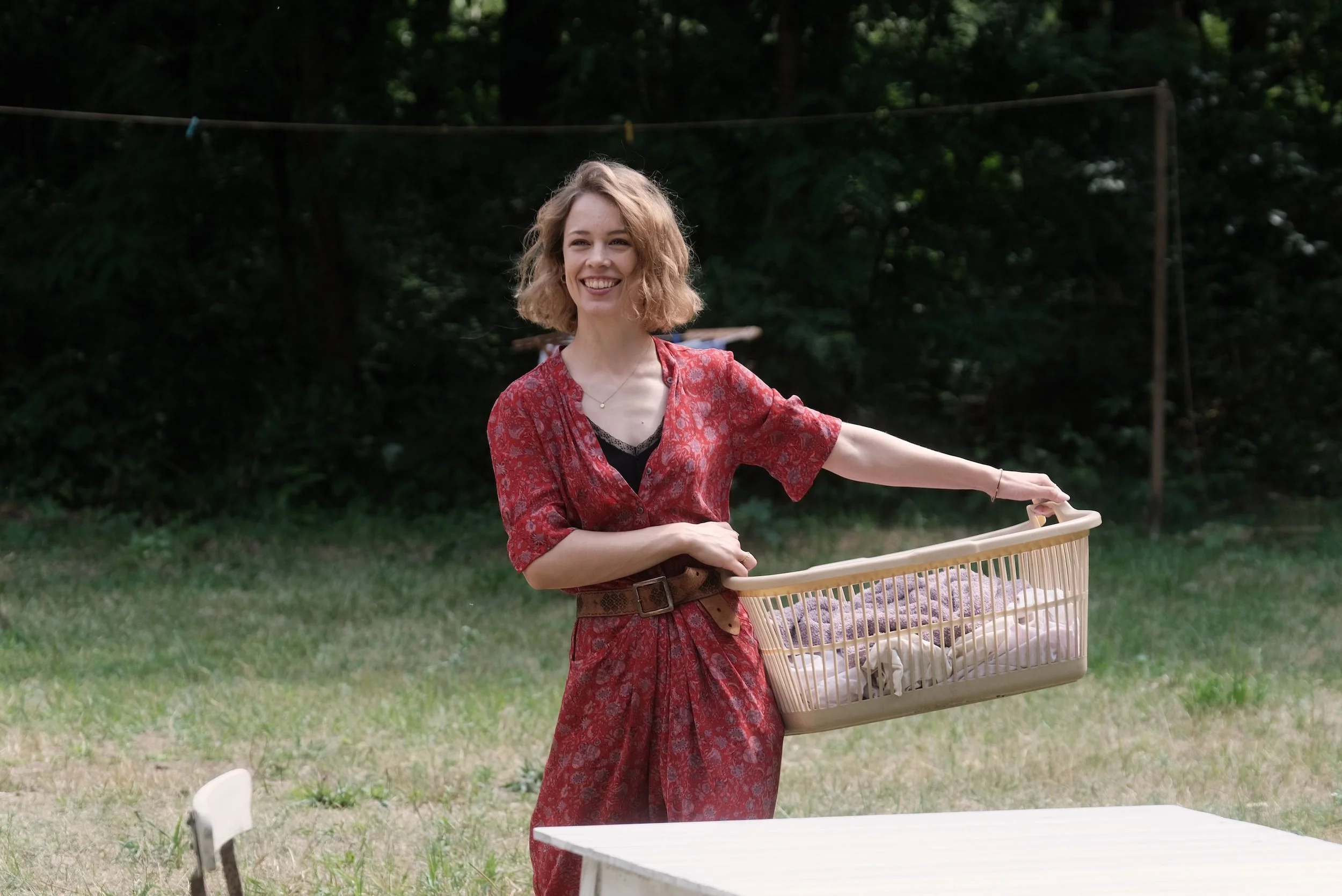Blazing
Making movies is hard. Making movies about d-bags is harder. Making us want to watch that? Sorcery.
Afire
Director: Christian Petzold • Writer: Christian Petzold
Starring: Thomas Schubert, Paula Beer, Langston Uibel, Enno Trebs, Matthias Brandt
Germany • 1hr 43mins
Opens Hong Kong October 19 • IIA
Grade: B+
A pair of artistic buddies, Leon (Thomas Schubert) and Felix (Langston Uibel), make a pact to spend a Baltic seaside vacation at Felix’s family’s summer home, working on their respective art: writer Leon is going to finish his second novel and photographer Felix is going to get a portfolio together for an art school application. When they get there, they’re surprised the house already has a guest: the mysterious Nadja (Paula Beer, Undine). “Woops!” says Felix’s mom of the mix-up. Leon bristles, Felix goes with it – he finishes a lasagna she made with a chipper “It’s good!” – and Nadja turns out to be pretty cool. Joining the trio eventually are Devid (Enno Trebs), a lifeguard and Nadja’s summer fling, and Leon’s terrifyingly unethusiastic editor, Helmut (Matthias Brandt). While they barbeque and drink wine, the German forest behind them is ablaze in a forest fire that becomes increasingly threatening as the days go by. The five characters become the ingredients in a cocktail that allows the very serious Leon to demonstrate a shocking level of oblivious self-absorption, arrogance, and ego, and for a spectacular evisceration of masculine entitlement by writer-director Christian Petzold.
Petzold started his vague quadrilogy loosely inspired by the elements with the fantastical Undine (water) in 2020, and picks up with Afire (Roter Himmel), which is one-part chamber piece, one part character study, and all satire of the artistic process and male ego. If you like your leading men “nice” and “relatable” and “thoughtful” turn around right now. Leon is one of the most myopic twats ever put to screen – and he’s kind of glorious in how nuanced Petzold has made him. Toxic masculinity comes in many forms.
What makes Afire so delicious (there’s a lot of schadenfreude here) is that we all know a Leon. He’s a fussy snob, and legit pouts when he doesn’t get his way, or when his suggestion is shot down, or when he doesn’t get the creative assessment of his book from Nadja or Helmut he thinks he deserves. The story unfolds at a leisurely, vacation-y pace after Leon and Felix spend their first two nights listening to Nadja have very noisy sex. Yes, it’s irritating, and Leon has a right to be miffed. But like an adult, Felix actually talks to Nadja instead of lurking in the hall, expecting her to come running. She truly thought she was alone, it was an honest mistake; the walls are thin. She’s sorry. Felix and Nadja hit it off, but it’s all downhill from there for the passive-aggressively offended Leon.
Petzold’s epic take-down of Leon and his beta male insecurities is as graceful as it is withering, and Afire paints a vivid portrait of the all-too-common way men, when threatened in their position by women and other less uptight men, lash out in petty ways and then rationalise their pettiness. Leon’s most popular commnent is “I have to work” when asked to join the others for dinner, or for a swim, or for some stargazing. Afire is loaded with Leon’s cringe-inducing gaffes (booking a hotel for his editor is tremendously awkward), but to Petzold’s credit ultimately we get where they’re coming from. Leon’s still a dick, but at least we understand his dickishness. He’s smart, but not as smart as Nadja (oh no!) or Helmut. He socialises, but not as effortlessly as Felix or Devid. When confronted with his considerable shortcomings, he gets mean.
But like most of Petzold’s work, the film is also a gentle dissection of our relationships; with each other, with nature, with how we navigate them to minimise a gut punch – or to maximise one. From jump it’s clear Leon harbours romantic feelings for Nadja, and from jump it’s obvious she’s way, way out of his league. Not for anything as frivilous as looks, but intellectually and emotionally, and when she points that out to him it’s the sad summation of Leon’s entire exisitence.
Petzold’s sneaky storytelling (it says more than it initally appears to) is rooted in sharp observations of group dynamics and modern concepts of shifting desire, and he lets the story bob and weave in all sorts of directions that take unexpected and heartbreaking turns. This could all come across as navel-gazing were Petzold not so astute, and Afire not chockers with excellent, naturalistic Berlin School (the relatively new no-muss, no-fuss filmmaking philosophy) photography and performances, especially from Beer as the fully realised Nadja, and Schubert in the thankless (?) role of the contrarian man-baby. Nadja’s easy to like, but Schubert threads a difficult needle by making Leon recognisable and abrasive without tipping over into blatant hatred. He’s more pitiable than contemptible. Whether or not he learns anything from his vacay is open to interpretation (I say no) but one thing remains. He’s still a dick. — DEK



